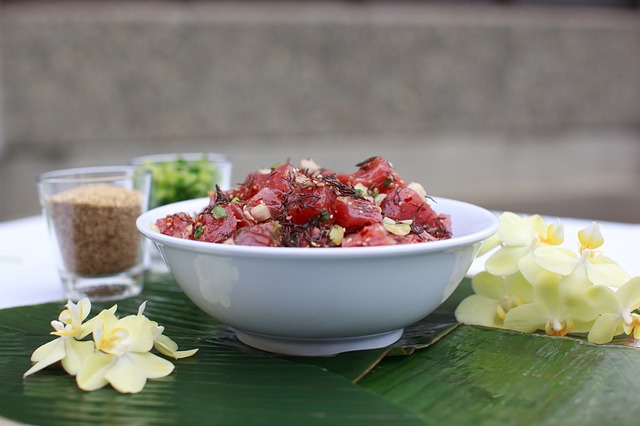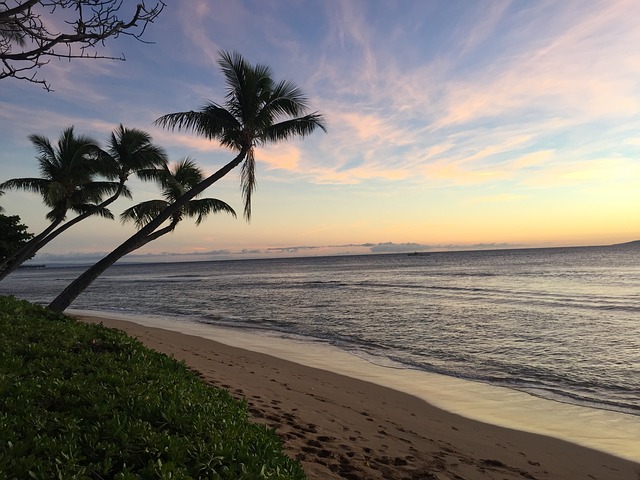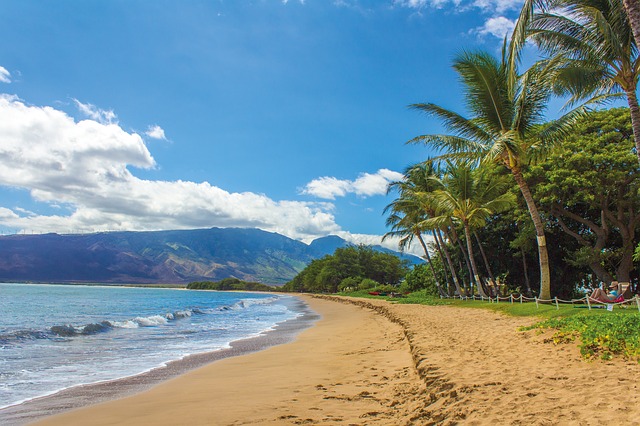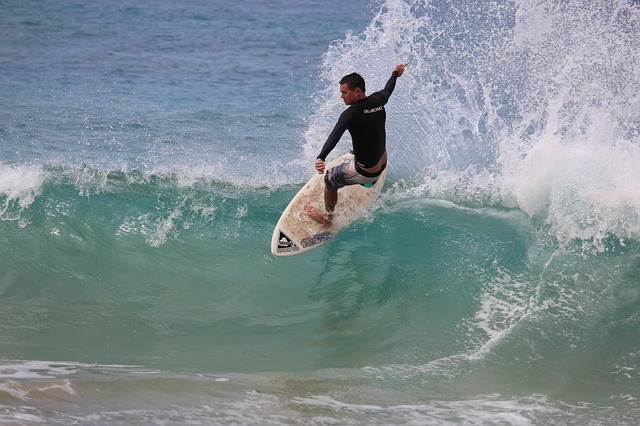Every year, millions of travelers discover the majestic Hawaiian island of Maui and fall head over heels in love. And it’s not just us Americans, either.
And it’s not just us Americans, either.
So what is it about this Hawaiian Island that makes it so enchanting and captivating to travelers? Well, unlike many tropical destinations, Maui (and Hawaii in general) offers beaches, culture, and sun with absolutely no caveats.
Yes, while you are hanging out in one of those marvelous Maui vacation homes on the island, you don’t have to worry for one second about tropical ailments, dangerous animals, unfriendly locals, or other less-than-savory things that have been associated (rightly or wrongly) with other tropical areas around the world.
As a result, my message to everyone from abroad who is considering coming to visit Maui is this: Maui is worry-free and the following are just a few of the main reasons why.
Beautiful Scenery
Maui is home to a relatively small land mass, which was formed by volcanic activity. As such, one could expect to find little contrast in scenery, but one of Maui’s most interesting traits is the variation of land and seascapes. One reason for this is that the climate of Maui varies big time over small distances. Mountains create weather systems by funneling clouds and moisture, and here, a distance of 20 miles can separate dessert like conditions and some of the wettest spots on earth.
One reason for this is an extreme variation in rainfall over small distances. Mountains create weather systems by funneling clouds and moisture in different directions. A distance of 20 miles can separate dessert like conditions and some of the wettest spots on earth.
And with volcanic mountains that reach for the stratosphere, Hawaii experiences 10 of the world’s 14 climate zones. Millions of years of wind and water erosion have also shaped the islands, creating dramatic valleys, canyons, and sea cliffs – and all of this is evident on Maui.
Few Tropical Maladies
While I am not one to worry about these types of things, an unpleasant side effect of many warm tropical climates is the accompanying diseases. Maui is relatively lucky in this regard. Leptospirosis is found in fresh water streams, and there is an occasional outbreak of Dengue fever, but occurrences are so low that they won’t factor into travel plans. You don’t need to worry about getting any kind of vaccination, either. Mosquitoes aren’t a huge problem, probably due to the nearly constant trade winds.
An Amazing Climate
Maui’s climate is obviously one of its selling points. Temperatures are very consistent, with highs typically ranging from 78 (26C) in the winter to 88 (31C) in the summer. Night temperatures are about 15 degrees cooler. The ocean temperature varies from 74 (23C) in the winter to 82 (28C) in the summer.
Just think about it, wherever you live, there is a good chance that at some point during the year you are inundated with storms, snow, increasingly less increments of sunshine, or some other tumultuous weather pattern.
Wonderful Wildlife
As one of the most isolated land masses in the world, only one land mammal (a bat) was found on Maui when humans first arrived around 300 AD. All other mammals on Maui were introduced. Today, the only alarming animal you may encounter while hiking in the forest is a wild boar. There are no snakes and few venomous creatures. Birds like the big Laysan Albatross don’t even understand the concept of a predator and can approached.
Wonderful Beaches
Technically the Hawaiian Islands boast several hundred beaches. Roughly 100 would be considered world class and can compete with the gorgeous beaches of Southeast Asia. Thankfully all the beaches in Hawaii are public and hotels provide shoreline access even to non-guests. Hawaii’s beaches don’t have sand flys and are kept clean by volunteer organizations.
This means that no matter where you choose to hit the beach in Maui, you are all set.
Friendly People
In some parts of the world tourists are treated with a mixture of skepticism and opportunity, and tourism as a necessary evil. To some degree, this is also true in Hawaii as well. The “Aloha Spirit” is a manufactured entity, trademarked by the tourist industry. And yet, despite Hawaii essentially being taken from the Hawaiian people at the turn of the 20th century, the residents of Hawaii (consisting of many ethnicities) are friendly and welcoming.
There are few places that would be considered off limits. Petty crimes are common but tourists aren’t targeted because they’re outsiders, rather the valuables they tend to leave in cars (for example) represent the easiest opportunity.
1st World Facilities
Hawaii is as developed as any state in the U.S., boasting first world infrastructure at every turn. This includes excellent health care facilities on all the islands. Perhaps around 90% of Hawaii’s food is shipped in from the mainland, but the selection of food doesn’t suffer as a result. All the islands offer excellent restaurants. Farmers markets are common.

The Freshest of Fish
If you’re going to wine and dine anywhere in the world, it might as well be the place that has the freshest catches of them all. Hawaii is home to thousands of tropical fish and fresh native fruits that are the freshest at their source. Fine dining in Hawaii doesn’t just mean a pop in prices.
As always though, asking locals for tips on local restaurants and food spots is your best bet to getting the best and often cheapest food in town. And if you are a real foodie, you will want to stop for some poke at the lunch counter like the locals do, which is usually very budget-friendly.
And here’s a tip, some of the best poke in Maui can be found in local supermarkets.


